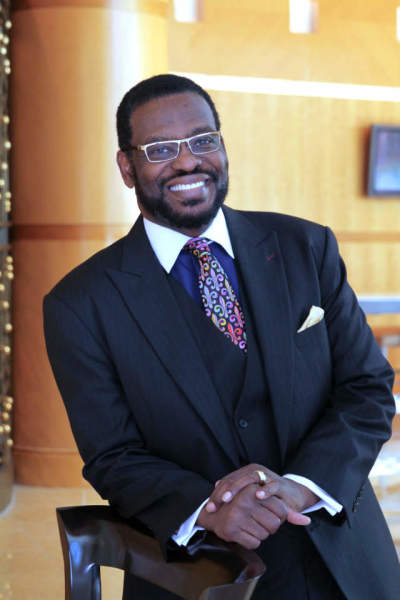Trayvon Martin's Hoodie in Smithsonian Museum? Black Megachurch Pastor Says He'd Rather Focus on Ending Racism

A black megachurch pastor said he'd rather use the "multiracial, multicultural" body of Christ to solve racism than commemorate Trayvon Martin by displaying his hooded sweatshirt in the Smithsonian National Museum of African American History and Culture, as suggested by the Rev. Al Sharpton.
"I'm just leaving Sanford, Florida now," Bishop Harry Jackson Jr., chairman of the High Impact Leadership Coalition and senior pastor of Hope Christian Church in Beltsville, Md., told The Christian Post in a Thursday interview.
"I've just signed on to something called the Sanford Declaration," he announced, introducing the document as "just an idea that we can end racism in America, and that a multiracial and multicultural team of people from the church – Christians – can start to transform the nation from our racist/insensitive roots in the next decade."
He quipped, "I'd rather do that than put a hoodie in the Smithsonian."
Michael Skolnik, political director for hip-hop mogul Russell Simmons and a member of the Trayvon Martin Foundation board, called the hoodie Martin wore when killed by now-acquitted George Zimmerman "like this mythical garment." The Rev. Al Sharpton has said he wishes the hoodie be "preserved."
The Smithsonian National Museum of African American History and Culture, expected to open in 2015, supported Sharpton's request. Museum Director Lonnie Bunch told the Washington Post she would "love" to include Martin's hoodie. "It's rare that you get one artifact that really becomes the symbol," she said.
Jackson, however, dismissed the racial relic in favor of substantive reform. "I would much rather have Al Sharpton enshrine the memory of Trayvon Martin with programs aimed to transform the lives of at-risk African American youth that would keep them from dissipating their lives by being caught up in violence," he said.
The pastor expressed qualified support for Fox News pundit Bill O'Reilly's remarks about race last Monday. "I agree with the Bill O'Reillys of the world that there are certain organic and structural things that have to be done," he said, referring to O'Reilly's support for a revitalization of the black church and the black family.
"I disagree with Mr. O'Reilly that the solutions have to have their origin in the black community," Jackson added. "I think they should have their origins in the Christian multiracial, multicultural community."
The Maryland pastor shared the story behind the Sanford Declaration, saying that last year, right after Trayvon Martin's death, Steven Strang of Charisma magazine texted him. Strang, publisher and founder of Charisma, works just two miles away from the scene where Martin was killed. "I challenged him to offer solutions," Jackson recalled.
Subsequently, Strang "held the meeting in Sanford where 65 leaders, black, white, Hispanic, met together in Sanford, and they appointed a very young, dynamic, African American leader to oversee this unity process," Jackson said. Due to this meeting, "ironically, although there was violence spoken of in Oakland, Los Angeles, and other cities, nothing of a violent nature happened in Sanford."
"Let the church be the model for ending racial prejudice in the nation," Jackson proclaimed. The declaration itself argues for "the need to address racism as a spiritual problem." It condemns racism "as a threat to the body of Christ and our mission to make disciples of all nations (Matthew 28:19)."
The declaration, "A Covenant of Racial Reconciliation, Relationship, and Christian Cultural Reformation," calls for a great cross-cultural outreach, to lift "families out of generational poverty" and motivate "at risk black, white, Asian, and Hispanic youths (especially males) in developing a sense of personal respect, dignity, and worthwhile goals." It also supports "cross-cultural evangelism of other races."
Calling for a unity of races in the body of Christ, Jackson also lamented the position of George Zimmerman. "Zimmerman had a desire to be an American hero," he said, adding that "many dark-skinned Hispanics don't have a place at the American table of privilege."
The pastor argued that each race has been stifled into a stereotype – young black men as "angry, hostile," Asian young men as "bright achievers."
"We've got to change the narrative of the American family and we've really got to let black kids see that they can have a legacy of achievement as opposed to just violence, anger, and non-intellectual pursuits," Jackson said.




























